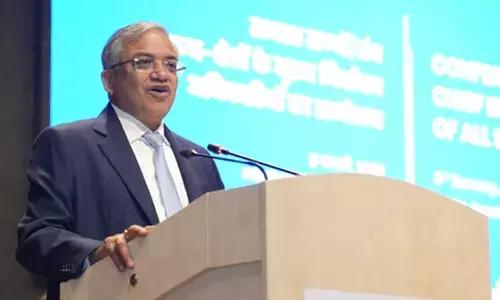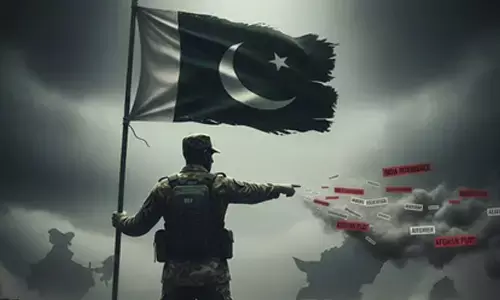Sudan Sues UAE at ICJ: Political Maneuver or Pursuit of Justice?

Sudan Sues UAE at ICJ: Political Maneuver or Pursuit of Justice?
Sudan has filed a lawsuit against the UAE at the ICJ, raising questions about whether it's a political maneuver or a pursuit of justice.
The first hearings began at the International Court of Justice in The Hague to consider a lawsuit filed by the Sudanese government against the United Arab Emirates. Sudan accuses the UAE of violating the Genocide Prevention Agreement by allegedly supporting the Rapid Support Forces in the Sudanese civil war that has been ongoing since April 2023. Despite the bold legal step taken by Khartoum, the dispute raises serious questions about its true motives—especially in light of documented international accusations of war crimes against the Sudanese army itself and the harsh responses from the UAE, which describes the lawsuit as “misleading” and “fabricated.”
Questionable Accusations and Motives
Since the military coup against the civilian government in 2021, the Sudanese government—now led by the army under First General Abdel Fattah al-Burhan—claims that the UAE provided military and financial support to the Rapid Support Forces, contributing to violent acts against the Masalit tribe in Darfur, which Khartoum has described as “genocide.” Acting Sudanese Minister of Justice Muawiya Othman told the court, according to Reuters, that “the genocide against the Masalit is being carried out by the Rapid Support Forces with the support and complicity of the UAE.”
However, this narrative faces significant challenges, as observers believe it may be an attempt to distract from the violations committed by the Sudanese army itself. In a United Nations report issued in September 2024, a fact-finding mission under the Human Rights Council documented that “the Sudanese army is responsible for widespread violations, including war crimes and crimes against humanity,” placing the army in a contradictory position by accusing others while facing similar allegations.
Sharp Sudanese Criticism
It is not only the international community that questions the lawsuit; prominent Sudanese voices have joined in the criticism. A former Sudanese Minister of Justice condemned the armed forces under al-Burhan for accusing the UAE, describing it as “a hypocritical move from an institution that is expected to have a long history of committing genocide, yet now seeks to portray itself as a defender of human rights.” He added that “the case, although it contains some legal aspects, is purely politically motivated and lacks moral credibility given the army’s record of war atrocities.” This view is shared by many Sudanese politicians and citizens who believe that the current leadership of the army is damaging Sudan’s relationships with its African and Arab neighbors—especially with a country like the UAE, which provides significant humanitarian support. Sudanese activist Fatima Abdullah wrote on the social platform X on April 7, 2025: “The army isolates us from our allies instead of confronting its failure to protect its people,” a sentiment echoed by many who fear that these policies will lead to even deeper regional isolation.
UAE: Decisive Response and Legal Defense
The UAE has strongly rejected the accusations, considering the lawsuit an attempt by Sudan to evade its responsibilities. In an official statement before the court, Ms. Reem Katit, Deputy Assistant Minister of Foreign Affairs for Political Affairs, stated, “Sudan’s claims are misleading and completely fabricated... the legal measures do not pertain to the UAE’s obligations under the Genocide Prevention Agreement.” She added that “Sudan, as one of the parties to the conflict, is exploiting the court to present false claims and to shirk its responsibilities,” noting that the lawsuit is “an attempt to circumvent the principle of state consent,” a fundamental tenet of international law.
The UAE reinforced its stance by emphasizing the court’s lack of jurisdiction while still participating in the hearings “out of respect for international law,” according to Katit, who called for “holding the perpetrators accountable for the ongoing violence, assaults on civilians, brutal acts, and sexual violence” — a clear reference to the responsibilities of the parties to the Sudanese conflict, chiefly the army and the allied extremist Islamic militias.
For her part, the UAE Ambassador to the Netherlands, Amira Al-Hafti, stated in a press conference: “The Sudanese army must bear its responsibilities… It has two options: cooperate with international efforts to end this catastrophe, or continue with its lamenting; the facts on the ground are undeniable and cannot be manipulated.” She added, “What the army is doing will achieve nothing, because it is the army itself that is responsible for what is happening; it must accept a comprehensive political solution to end the suffering of the Sudanese people.”
Conflicting Evidence and a Humanitarian Record
The Sudanese army has not presented conclusive evidence directly linking the UAE, relying instead on claims such as the discovery of UAE weapons and documents—issues Abu Dhabi has explained could be attributed to stolen items or arms circulating in regional markets.
In contrast, the UAE has highlighted its humanitarian record, citing investments totaling $4 billion to support Sudan before the war and providing $600 million in aid since April 2023 through the United Nations, along with establishing field hospitals in Chad and South Sudan (official statement, UAE Ministry of Foreign Affairs, April 10, 2025).
It also confirmed its support for mediation efforts in Jeddah, Manama, and Switzerland, hosted a humanitarian conference in February 2025, and mentioned signing a military cooperation agreement with al-Burhan in July 2020 at his request—further underscoring the contradiction in Khartoum’s current stance.
The Sudanese Army: A Record Marred by Crimes
Sudan’s position is further weakened by the army’s long history of violations. In a report by Human Rights Watch dated April 5, 2025, the organization documented the army’s use of indiscriminate bombing and explosive barrels in Khartoum, which resulted in the deaths of hundreds of civilians since regaining control of the capital in March 2025.
Historically, the United Nations condemned the army for using chemical weapons in Darfur in 2017 (UN report, 2017), and the Security Council issued Resolution 2206 in 2015 condemning its crimes.
Sudanese activist Youssef Ibrahim Adam wrote on platform X on April 8, “The army is trying to drag everyone into its quagmire to distract from its ongoing crimes.”
Political Game or Legal Pursuit?
The available evidence suggests that the lawsuit may be more a political tool than a genuine pursuit of justice. The Sudanese army, isolated both domestically and internationally after rejecting peace negotiations such as the Geneva round in 2024, appears to be using the court to tarnish its opponents and justify the continuation of the war.
As noted in a Foreign Policy report on March 17, 2025: “The lawsuit aims to internationalize the conflict to gain external pressure, but it lacks solid legal evidence.”
This lawsuit between Sudan and the UAE exposes the complexities of the Sudanese conflict, where political agendas clash with legal responsibilities. While the army accuses the UAE of “complicity,” the latter counters that Sudan is “distorting facts” to escape its own responsibilities.
With the war ongoing—leaving more than 24,000 dead and 14 million displaced according to various reports—the International Court of Justice now faces a critical test: will it serve as a platform for justice or merely as an arena for political maneuvering? As Ambassador Al-Hafti stated, “The facts on the ground are undeniable,” yet uncovering the truth will require more than mutual accusations.
















